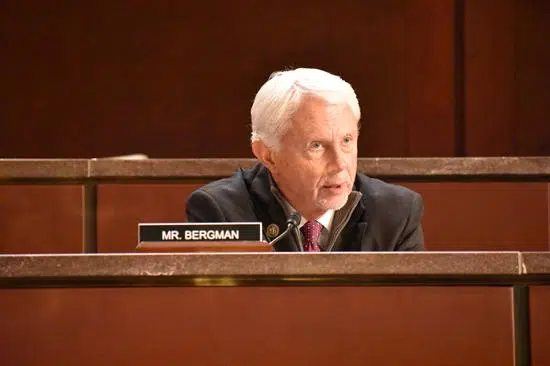U.S. Senator Gary Peters (MI) called on the Biden Administration to include $3.4 million for the United States Coast Guard Great Lakes Center of Expertise for Oil Spill Preparedness and Response, which was created and headquartered in Michigan thanks to Peters-led efforts, in their Fiscal Year (FY) 2023 budget request. Peters previously secured $4.5 million to establish the Center of Expertise. This new level of funding would help support the Center of Expertise as it formally begins its operations in Michigan this summer.
To maximize research and operational capabilities, in October, the Center of Expertise formalized a partnership between Lake Superior State University in Sault Ste. Marie, which will serve as the hub of the Center of Expertise and home to its supervisor, the Great Lakes Environmental Research Laboratory in Ann Arbor, and the Coast Guard. The Center of Expertise will examine the impacts of oil spills in freshwater environments and help develop effective responses. This work will be critical in protecting the Great Lakes, as current oil spill response technologies are primarily designed for saltwater environments.
“As you finalize your budget request to Congress for Fiscal Year 2023, I respectfully urge you to include not less than $3.4 million in funding for the U.S. Coast Guard’s Great Lakes Center of Expertise for Oil Spill Preparedness and Response,” wrote Senator Peters, a member of the Senate Commerce, Science and Transportation Committee. “This funding will be used to support the Center, which is set to open its doors this summer, as it undertakes the critical work of advancing research, development, and testing of freshwater oil spill response efforts.”
“The Great Lakes are more than just an economic engine and ecological treasure – they are simply in the DNA of Michiganders. An oil spill in the Great Lakes would be catastrophic for Michigan and the country,” Senator Peters continued. “We need to be doing everything we can to protect them for future generations and to prevent a disaster from happening – including assessing how we can effectively respond to any potential future spill.”
The full text of Senator Peters’ letter is available here.
In 2017, the then-Commandant of the U.S. Coast Guard told Peters at a hearing that the agency was not prepared for an oil spill in the Great Lakes, saying that more science and research was needed. Due to the COVID-19 pandemic, the Coast Guard was forced to delay a decision on site location and formal establishment of the Center of Expertise. However, a location was able to be determined in Michigan as a direct result of significant support from Peters.
Peters has made protecting the Great Lakes one of his top priorities in the U.S. Senate. In 2019, Peters secured a bipartisan provision that was signed into law as part of the year-end funding bill to provide the first increase in GLRI funding since the program was established a decade ago. To build on that progress, Peters helped pass the bipartisan infrastructure law, which included $1 billion for the GLRI – the single-largest-ever investment to protect the Great Lakes. Peters’ bipartisan bill to update the Environmental Sensitivity Maps for the Great Lakes was signed into law last year. These new maps will provide more accurate assessments of coastal resources that are at risk of severe damage or a natural disaster, including endangered and threatened species, sensitive shoreline habitats, and widely used community resources such as beaches, parks and boat ramps.

























Comments